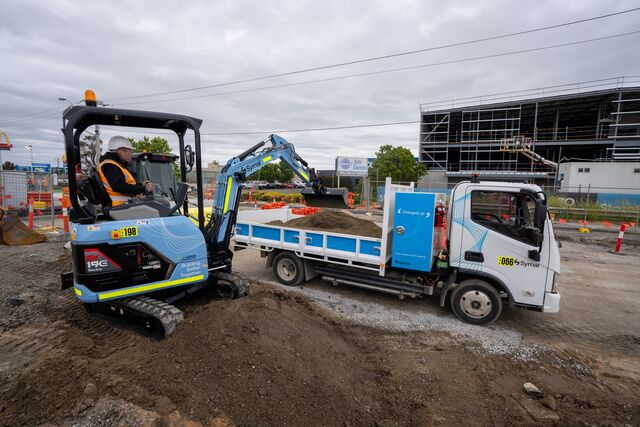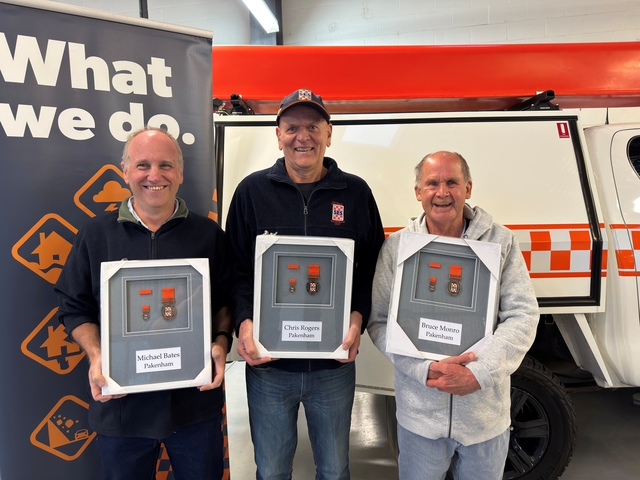New vaping reforms are in place across Australia in a crackdown purporting to safeguard young people, but has left a Pakenham pharmacist seeking clarity as vapes are now only available at chemists.
Furhter, a prescription from a general or nurse practitioner is required.
It is said to be a world-leading reform.
University of Melbourne School of Psychological Sciences associate professor Michelle Jongenelis says this is “definitely a win” for public health.
“We didn’t get the controlled access we were hoping for but it’s better than anything else beforehand and better than stores opening near high schools selling e-cigarettes.
“The loophole behind whether it contains nicotine, retailers won’t be able to hide behind this anymore after the law comes into effect because they’ll be treated the same regardless.
“It’s a huge step forward in public health safety.
“We do need to work considerably hard with various pharmacies and groups to make sure they’re providing right advice and information to people who want to source e-cigarettes.”
States and territories will be able to take fast enforcement action on non-pharmacy stores selling vapes, without the need to determine if the vapes, regardless of the labelling, actually contain nicotine.
Though some confusion still lingers for pharmacists as a last minute amendment by the Greens means a prescription will no longer be required to purchase vapes from a pharmacy from 1 October for those aged 18 years and over.
Furthermore, the Federal Therapeutic Goods Administration (TGA) has not approved any vape products which leaves pharmacist Beshoy Shahat from Direct Chemist Outlet in Cardinia Lakes waiting on clarity.
“Nothing is clear at the moment because we are not allowed to stock anything that is not TGA approved and no vape product is TGA approved,“ he said.
“Will they make the TGA approve some of the products or will they allow us to sell non-approved products?”
The TGA currently has a list of vape products notified to them claiming they comply with ‘applicable standards’, but no product has been assessed.
Vapes containing nicotine or a zero-nicotine substance will available by October, the TGA says, but will be subjected to certain conditions including products in plain medical packaging, available only in mint, menthol and tobacco flavours, as well as the pharmacist providing advice and support around smoking cessation and nicotine dependence.
Shahat still wants certainty on approval and is concerned about a scenario where it is suspended for vapes.
“Again, even a prescription must be for something that is TGA approved,” he said.
“I think it will be a mistake if they let pharmacies sell non-TGA approved products because they will advertise and I’ll have people coming through just for vape products.”
The amendment from a schedule four (prescription only) to a schedule three (pharmacist only) sparked fury across pharmacies.
The Pharmacy Guild of Australia, representing 5800 pharmacies nationally, stated it was “strongly opposed” to the amendment.
“Pharmacists are healthcare professionals who dispense medication that provides a proven therapeutic benefit.
“No vaping product has been approved by the Therapeutic Goods Administration based on its safety, efficacy, or performance. No vaping product is listed on the Australian Register of Therapeutic Goods.
“Everyone wants to keep illegal vapes out of the hands of kids and teenagers, but the Senate wants pharmacists to stock vapes next to children’s Panadol, cold and flu medicine, and emergency contraception.”
Under the amendment, those under the age of 18 who want to buy vape from the pharmacy to help with their smoking addiction would need to visit their GP for a prescription.
However, Drug Education Australia founder Sharon Torpey says there are no solid research that suggests vaping can help with smoking addictions.
“We don’t want young people vaping at all whether it’s regulated or not, inhaling anything other than oxygen is not ideal.
“Some people are justifying vaping for getting off smoking addictions but there’s no research anywhere that vaping is an effective way to do that.
“There are other ways you can manage or break the addiction. I would suggest that you go to other means before going down the way of vape,” Ms Torpey said.
A major peer-reviewed study led by the Australian National University (ANU) confirmed young non-smokers are three times as likely to smoke regular cigarettes compared to young people who don’t use e-cigarettes.
“We have nicotine replacement and treatments available, counselling may help for others, it depends on the depth of addiction,” Ms Torpey said.
It also further emphasised the “alarming” increase in e-cigarettes amongst young people as the trend tripled between 2019 (2.5 per cent) and 2022-2023, (7 per cent), according to Australian Institute Health and Welfare (AIHW) data.
Ms Torpey also works with young students in schools to educate and raise awareness about the risks involved with e-cigarettes, alcohol and other drugs.
A qualified physical education and health teacher, with 25 years’ experience Ms Torpey says she has seen a positive shift in young people’s attitudes towards vaping.
“At least we’re doing something about this issue because there was while it felt like we were in limbo, we saw more young people get involved in this and it felt like nothing was being done.
“This year when I go to school and ask how many students know someone who vapes the percentage is far more realistic and on target between 15 to 20 percent compared to last year,” she said.
“There’s a much better understanding of the risks and harm, think there’s a positive shift in perception and the reforms will slow down the uptake further.”
According to AIHW half of people (49 per cent) between the ages of 18 and 24 had used e-cigarettes and vapes as of 2022-2023 and 28 per cent of teens aged 14 to 17.
Ms Torpey says the stockpile of vape in Australia will take 18 months to diminish according to research.
Retailers and those found illegally importing vapes for sale will face heavy fines of up to $2.2m and up to seven years jail time as per the original legislation.







